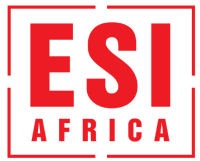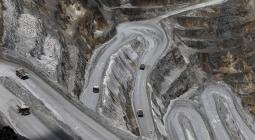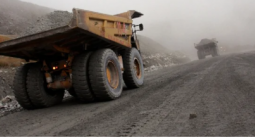High demand for hybrid power solutions in Africa’s mining sector

There has been a growing demand for hybrid power solutions in the mining sector in Africa as evidenced by the approval of a solar system at Mozambique’s Balama Mine.
The approval of a solar and battery system at the Balama Graphite Operation in Mozambique also reflects a move towards cost savings and sustainability given increasing risks associated with global energy supply chains.
The escalation in energy prices due to the conflict between Russia and Ukraine are hurting countries most heavily reliant on energy imports. In African markets, high consumption industrial and commercial enterprises are feeling the pinch. South Africa, for example, recently put out a call for proposals to private producers to supply an additional 2,600MW of renewable energy.
President of CrossBoundary Energy Pieter Joubert says: “At the moment, solar and wind are cheaper and cleaner electricity options for commercial and industrial companies, particularly mining houses. The mining industry is looking to improve cost structures to increase margins and ensure a strong balance sheet during these uncertain times. Renewable energy solutions can typically save up to 30% in electricity costs and generate an attractive return on capital due to the low upfront capital costs.”
Balama Graphite Operation – Mozambique
On average, the 11.25 MWp solar and 8.5 MW/MWh battery energy storage system (BESS) at Balama Graphite Operation will reduce diesel consumption for power generation by 35%. During peak daylight times, the solar battery system will be able to supply up to 100% of Balama’s power requirements, taking advantage of the high solar irradiation potential of the site location. The renewable energy system is forecast to save about $8 per tonne at a 15kt per month production rate.
The solar battery system was approved by Syrah Resources’ board of directors in April 2022 and is scheduled to be commissioned and operating before the end of March 2023.
QIT Madagascar Minerals (QMM) – Madagascar
The 8MW solar, 12MW wind and 8.25MW BESS solution located in Fort Dauphin, Anosy, Madagascar, will provide 60% of QMM’s energy, making it the largest renewable penetration project for a mine in Africa. The project is projected to reduce the mineral sands operation’s annual carbon dioxide emissions by approximately 40,000 tonnes. The project broke ground in December 2021 and operations are expected to start by mid-2022. The project is funded by CrossBoundary Energy via a 20-year power purchase agreement with Rio Tinto which will see Crossboundary Energy build, own and operate the hybrid renewable energy plant.
Molo Graphite Mine – Madagascar
The 2.5MW solar, 1MWh BESS and 3.3MW thermal energy system at Molo Graphite Mine will reduce its total cost of electricity, lower its all-in sustaining costs ands minimise its carbon emissions. CrossBoundary will supply the hybrid solar and thermal energy system to power operations at the NextSource Materials’ owned mine for a 20-year term. The system has been designed to scale with Molo Graphite Mine and ensure 100% power availability.
Matthew Fredericks, CrossBoundary Energy’s Director of Business Development for Mining explains: “We have seen a massive shift in the mindset of mining houses, particularly executive decision-making, not just in Africa but globally. The requirement to control operational costs coupled with the pressure to reduce greenhouse gasses has never been more evident than in the past few months.”
How mines are turning to renewable energy and energy storage systems and their potential to power surround communities will be discussed at this year’s Enlit Africa.
cover photo: Image: [Somporn Suebhait] © 123RF.com





